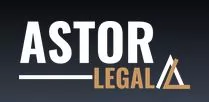- in Australia
- within Media, Telecoms, IT, Entertainment and Law Department Performance topic(s)
Police have dropped all COVID and resist arrest charges against a popular Sydney bodybuilder who was arrested in April 2020.
Dimitri Moskovich, also known as "Mr Bondi", was arrested by two police officers after they accused him of breaching COVID-19 rules during lockdown last year.
The police will also be required to pay his legal fees - totalling $25,000.
However, Mr Moskovich is still not satisfied, and is demanding an apology from NSW Police.
What Happened?
NSW Police said they approached Moskovich in North Bondi "after noticing him walking through fencing near the rock platform at Ben Buckler point, allegedly contravening the local government signs stating the area was closed".
A video recording shows the confrontation with police yelling, "Lie down, put your hands behind your back Dimi, lie down, Dimi don't fight back."
However, the 55-year-old bodybuilder fought back, which resulted in police laying a further charge of resisting arrest.
The charge of resist arrest carries a maximum penalty of five years imprisonment.
Court Case
When the case went to Waverley Local Court, Mr Moskovich pleaded not guilty in July 2020 to charges of resisting arrest and failing to comply with a notice in a public place.
"This court has never seen a person less guilty than me," Mr Moskovich said at the time.
However, with the charges ultimately being withdrawn, the bodybuilder said he had a big weight lifted off his shoulders.
"I've been abused, assaulted just for six, seven minutes and then I got arrested like the worst criminal.A moron with a police badge is much more dangerous than a monkey with a hand grenade," Moskovich said.
He went on to compare NSW Police to Soviet Union enforcers, saying, "I never thought something like that could happen in Australia. I thought maybe in the Soviet Union."
Online Hate for COVID and Resist Arrest Charges
Moskovich revealed that he had copped a lot of hate online following his arrest and after being charged with resist arrest and COVID offences.
"A lot of people said I got what I deserved," he said.
He went on to say that he believed NSW Police owed him an apology, stating, "I do believe I deserve an apology but I may be naive."
He is expected to sue for compensation.
Police say an internal investigation into the officers' actions is underway. The incident follows a number of recent incidents of police misconduct such as NSW Police officers stalking a criminal lawyer, as well as a separate incident where police stomped on the head of a mentally ill man.
Resist Arrest Lawyers
Section 58 of the Crimes Act 1900 (NSW) sets out that if you use force to oppose or attempt to escape from police acting in the lawful execution of their duty, you can be guilty of resisting arrest.
You can fight a Resisting Arrest in two ways. Firstly, the prosecution must prove each of the following beyond reasonable doubt:
- You resisted arrest; and
- The police officer(s) was/were acting within their duties
If any of these elements are not made out, then you can be found 'not guilty'.
Secondly, you can rely on one of the defences to resist arrest.
- The police officer was not acting within their duties. If we can establish that the arrest was not lawful, your actions in resisting or hindering will not constitute an offence.
- Identification: If Police cannot establish you were responsible for the assault
- Duress: you were forced to commit the offence
- Necessity: you committed the offence because it was necessary in the circumstances
There is also a less serious charge of hinder police. Section 546C of the Crimes Act 1900 (NSW) sets out that if you prevent a police officer from carrying out their duty, you can be guilty of hindering police.
You can fight a Hindering Police in two ways. Firstly, the prosecution must prove each of the following beyond reasonable doubt:
- You hindered police; and
- The police officer(s) was/were acting within their duties
If any of these elements are not made out, then you can be found 'not guilty'.
Resist Arrest is an offence which can carry a maximum term of imprisonment of 5 years if dealt with in the District Court. The maximum penalty in the Local Court is 2 years.
Hinder Police carries a maximum term of imprisonment of 12 months.
Of the 255 cases heard in the Local Court over the last 5 years, less than 25% of people received no conviction for resist arrest. 5% of people were sentenced to some form of imprisonment. The remaining offenders all received convictions.
Over 75% of offenders are convicted. Clearly, receiving a Section 10 dismissal is not easy. As such, if you wish to avoid a conviction, you should speak to one of our specialist criminal defence solicitors for Resist arrest.
The content of this article is intended to provide a general guide to the subject matter. Specialist advice should be sought about your specific circumstances.


